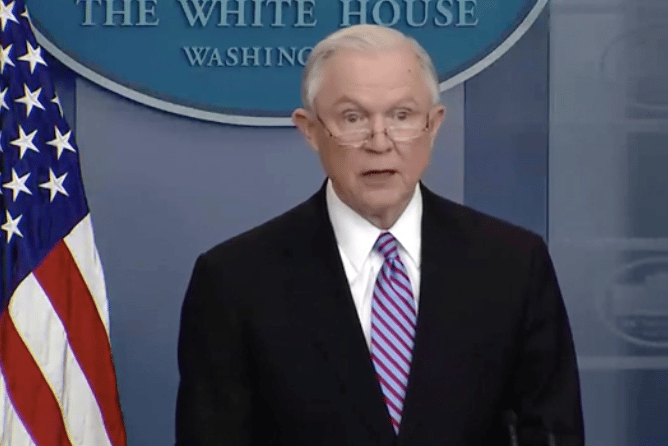Attorney General Jeff Sessions issued a warning to the nation's so-called "sanctuary cities" Monday: Comply with the law or lose funding. Denver says it's already following the rules Sessions wants it to.
Sessions wants all cities, counties and states to certify compliance with 8 U.S. Code 1373, which requires that local jurisdictions share information with the federal government.
"I strongly urge our nation's states and cities and counties to consider carefully the harm they are doing to their citizens by refusing to enforce our immigration laws and to rethink these policies," Sessions said. "Such policies make their cities and states less safe. Public safety as well as national security are at stake and put them at risk of losing federal dollars. The American people want and deserve a lawful system of immigration that keeps us safe and one that serves the national interest."
Denver Mayor Michael Hancock has walked a line on the "sanctuary city" label. The city has not formally adopted the label since President Donald Trump signed his executive order to cut off funding for those cities. Hancock doesn't want to draw unnecessary consequences upon the city nor cause worry and fear in Denver's immigrant communities.
In an emailed statement, city spokeswoman Amber Miller said Sessions' comments today are nothing new.
"Denver does not shield violent criminals," she said. "We do not violate any federal immigration laws. We will always honor federal warrants. We have open lines of communication with ICE so we can focus on apprehending dangerous individuals and keep our city safe."
"What we heard from the AG today was simply a reiteration of threatened punitive funding action that we believe would be against the law," she added. "That's why Denver is challenging the executive order in court alongside 34 other cities at this time. This 'tough talk' by the federal government does not make our communities more safe. What does is a system where federal and local governments respect each other’s roles and work together to close gaps and focus on dangerous people in our cities. In Denver, we are committed to this."
The city sends fingerprints of people booked at the jail to the FBI and Department of Homeland Security and notifies ICE when suspects of interest are expected to be released from jail, and city officials have repeatedly insisted they are in full compliance with federal law. Nonetheless, Denver and other Colorado counties have appeared on ICE's list of jurisdictions that are not helping enforce immigration law. This includes not honoring immigration detainers, which are requests to hold immigrants who could otherwise be released from jail until immigration authorities can pick them up, and not notifying authorities about the pending release of immigrants in a timely manner.
A bill that passed the state House would go further and prohibit the state and Colorado cities and counties from sharing information about immigration status -- "except as otherwise required by law" -- with the federal government. That bill faces likely defeat in the Republican-controlled Senate, and it's not clear that it would have changed the status quo anyway.
Sessions said his policy is consistent with DOJ guidance that was issued last year under the Obama administration. Cities that don't comply won't get DOJ grants in the future, and the department will take "all lawful steps to claw back" grants that have already been issued.
Trump's executive order to defund sanctuary cities seemed to leave open the possibility of funds also being withheld from cities like Denver that don't honor immigration detainers, which multiple courts have found to not be enforceable.
Update: This story has been updated to include a response from the city of Denver.













